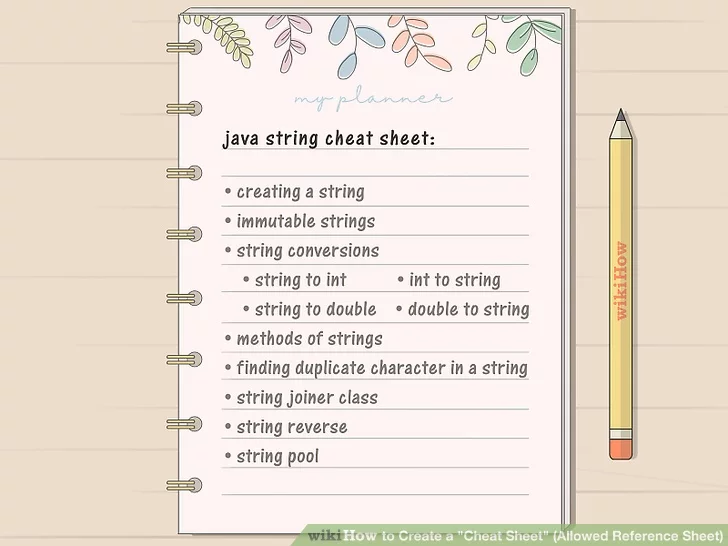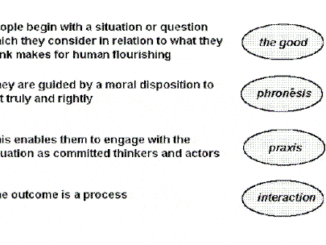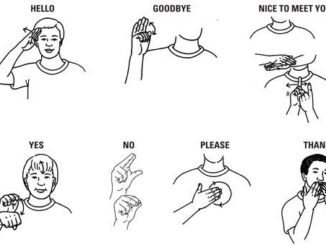
Should Teachers Allow “Cheating” on Exams?
“What!“
“Are you kidding me?“
“Are you serious?“
Yeah, I can just hear you now. Yes, I’m serious. Should learners be allowed to use cheat sheets, “cribs“, “chancucos” or whatever else you want to call them, during quizzes or exams?
“For goodness sakes, no.“
“Absolutely not“
“No way, Jose!“
“Are you out of your mind?“
Hey, I’ll just bet there will even be a couple of “No way in H—-!” responses.
But hold there, Hoss. Just a minute. Hear me out before you form a posse to come and get me.
The Foreign Language Evaluation Experience
Most schools, institutes, and foreign language programs schedule formal evaluations or tests several times per semester, level or whatever their term divisions might be. For the most part, these are neither pleasant, nor positive experiences for teachers or foreign language learners either. Teachers especially, can have a better exam day experience if they have eyes in the back of their head and can be in three places at the same time. (Yeah, right) If not, then you’ll likely want to consider some alternatives or adjustments to smooth out the test-taking process. Often, the teacher must receive and check a wheel barrow load of assignments, texts, essays or compositions or assignment workbooks before an exam. Sometimes right before a scheduled exam on the very same day. If the poor soul has more than one class group scheduled for an exam on the same day, break out the Bacardi, boys.
Foreign Language Learners and Exams
It’s certainly no bed of roses for your foreign language learners either. After a period of cramming verb conjugations, vocabulary lists, idioms and expressions and pronunciation into their heads and down their throats, the stress an exam brings doesn’t usually bode well for them. This is, of course, not even mentioning the reams of grammar rules and exceptions they continually had to swallow and somehow internalize during the past few weeks.
“What do you think the night before the exam was like for the majority of your foreign language learners?“
Yeah, me too.
Foreign Language Learning Evaluations
If we consider for a moment, the true purposes of foreign language learning evaluations in both formal and informal aspects, we find that evaluations are used to:
– Validate the learners level of knowledge
– Provide feedback on teaching methodology
– Highlight areas of weakness in learner foreign language knowledge
– Establish current level of foreign language communicative skills
– Demonstrate to learners what they truly know or don’t know
At what frequency and in how much detail these are determined will depend on the school, institute or program. To ultimately aid in this process, standards such as the Common European Framework have been established to provide internationally accepted rubrics for both institutions and teachers in preparation of evaluations.
Open Book Evaluations
While not typical in many school districts, the “open book” style of learner evaluation is a valid one. Learners may use their notes, their textbook or even an especially prepared set of pages as reference material while taking an exam. The responsibility of the teacher or exam preparer then, is to create an evaluation which is challenging in the mode and type of responses required to elicit a “correct” response to evaluation questions. If the aim is more critical thinking or conceptual comparison of major themes taught, then allowing learners to access texts or notes, will not provide the learner with any distinct advantage.
There is no real “cheat” for critical thinking or comparative analytical skills. These types of evaluations help to define the learner’s ability to apply the knowledge they’ve received to practical (or theoretical) situations, providing a far more valuable insight into the educational process for both the teacher and the learner. So whether or not learners can have access to reference materials during an evaluation, most certainly would depend on the type of evaluation they are taking.
In the following articles of this series, we’ll explore the concept further.
See you then.
Proudly WWW.PONIREVO.COM



